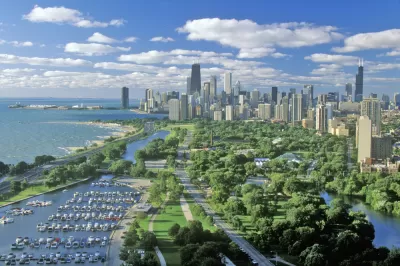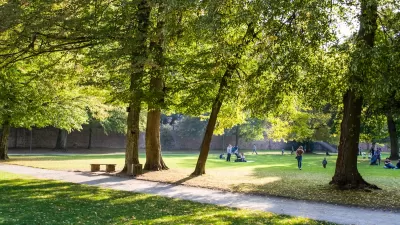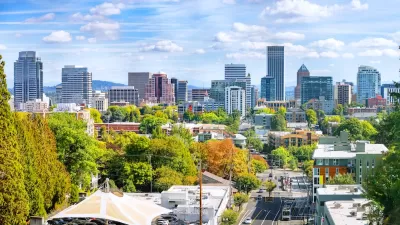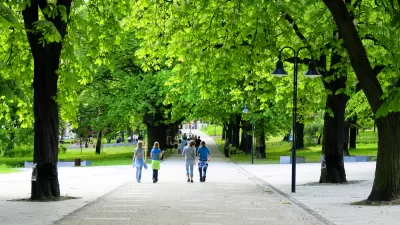Results of a new survey suggest that there are benefits to be reaped from a focus on climate change.

According to a new report published by Natural Areas Conservancy, the Trust for Public Land, and Yale School of Forestry and Environmental Studies, forestry professionals could benefit greatly from more information about climate change, among other topics. The survey, reports Amanda Kolson Hurley, "represented 125 organizations in 110 cities."
"Societal issues such as green-space access and the urban heat-island effect often aren't integrated into management of urban forests," details Hurley. "Forest managers need more data on climate change, pests, and other factors. They need more funding. And they spend much of their time dealing with invasive species and trash."
When asked about factors in decision making, 61 percent of survey respondents cited conservation of native species as one of the top three factors they consider. "By contrast, climate-change projections and the urban heat-island effect were not considered at all by large shares of respondents (47 and 53 percent, respectively)."
So, could more pertinent data on climate change effect the work of forest managers? Not dramatically or instantly, says Hurley. "Even forest managers who have robust information may not be able to act on it as much as they'd like, because they're so busy removing trash and fighting invasive species such as honeysuckle and kudzu. Those activities leave less time for practices like soil amendment, which improves soil and plant health."
Recommendations from the report's organizers include improving access to urban forests among low-income communities, prioritizing forest safety, including forestry management in urban resiliency planning, and nation-wide budget increases for urban forestry management.
FULL STORY: America's Management of Urban Forests Has Room for Improvement

Trump Administration Could Effectively End Housing Voucher Program
Federal officials are eyeing major cuts to the Section 8 program that helps millions of low-income households pay rent.

Planetizen Federal Action Tracker
A weekly monitor of how Trump’s orders and actions are impacting planners and planning in America.

Ken Jennings Launches Transit Web Series
The Jeopardy champ wants you to ride public transit.

Rebuilding Smarter: How LA County Is Guiding Fire-Ravaged Communities Toward Resilience
Los Angeles County is leading a coordinated effort to help fire-impacted communities rebuild with resilience by providing recovery resources, promoting fire-wise design, and aligning reconstruction with broader sustainability and climate goals.

When Borders Blur: Regional Collaboration in Action
As regional challenges outgrow city boundaries, “When Borders Blur” explores how cross-jurisdictional collaboration can drive smarter, more resilient urban planning, sharing real-world lessons from thriving partnerships across North America.

Philadelphia Is Expanding its Network of Roundabouts
Roundabouts are widely shown to decrease traffic speed, reduce congestion, and improve efficiency.
Urban Design for Planners 1: Software Tools
This six-course series explores essential urban design concepts using open source software and equips planners with the tools they need to participate fully in the urban design process.
Planning for Universal Design
Learn the tools for implementing Universal Design in planning regulations.
Ada County Highway District
Clanton & Associates, Inc.
Jessamine County Fiscal Court
Institute for Housing and Urban Development Studies (IHS)
City of Grandview
Harvard GSD Executive Education
Toledo-Lucas County Plan Commissions
Salt Lake City
NYU Wagner Graduate School of Public Service





























